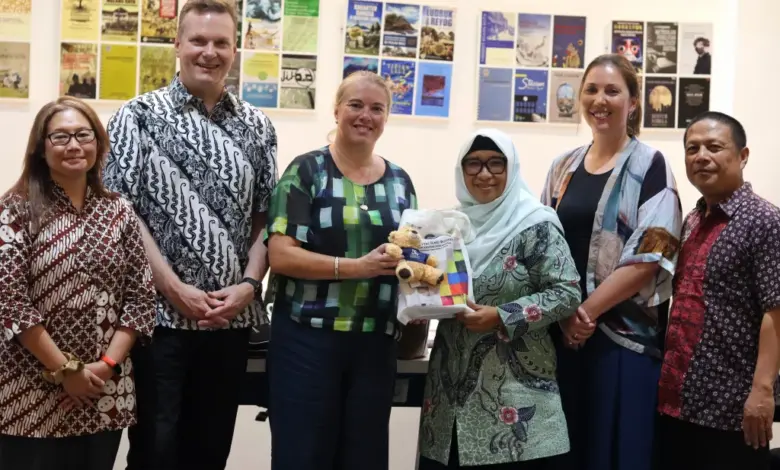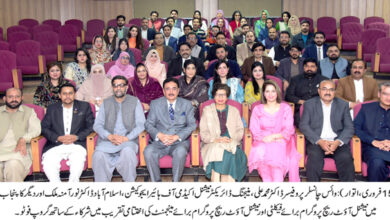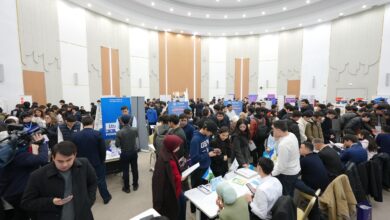UNAIR FIB Hosts Guest Lecture on Child Communication and Health: Insights and Implications for Global Health

The Faculty of Humanities (FIB) at Universitas Airlangga (UNAIR) organized a guest lecture titled “Bridging Gaps in Communication Development Within Global Health Care” on April 29, 2025. The event took place in the Prapanca Room of the FIB Building, located on the Dharmawangsa-B Campus.
Research Insights from The University of Melbourne
Three researchers from The University of Melbourne presented insights from a four-year study examining how classroom design influences children’s reading abilities, which involved approximately 200 students from six schools. Lina Puryanti, SS, M.Hum., Ph.D., who serves as the Vice Dean for Research, Innovation, and Community Development (RICD), also participated in the session.
Limitations of Open-Plan Classrooms
Prof. Dani Tomlin, one of the primary speakers, highlighted several limitations associated with open-plan classrooms. She pointed out that high noise levels can impede effective learning, stating, “Children tend to learn better in quieter environments. In noisy open classrooms, their reading performance tends to decline.”
The research indicated that the effects of noise on learning vary among students; those with shorter attention spans or difficulties understanding speech in loud environments demonstrated notable decreases in literacy. Tomlin underscored the necessity for varied learning environments, explaining, “Some children can still thrive in open classrooms, but others need a quiet environment to maintain focus and absorb lessons.”
Addressing Childhood Hearing Loss
The presentation also addressed issues related to childhood hearing loss. Associate Prof. Kelley Graydon and Dr. Christopher Waterworth cautioned that common practices, such as the use of cotton swabs, can harm the ear canal. Graydon noted, “Many individuals are unaware that ears are self-cleaning. Using cotton swabs often pushes earwax deeper, causing harm.”
Graydon and Waterworth emphasized that hearing problems can begin even before birth, often due to factors such as medication exposure, ear infections, birth complications, and genetic predispositions. Dr. Waterworth specifically referenced Gentamicin, an over-the-counter medication that can severely impact a child’s hearing.
Consequences of Early Hearing Loss
In a subsequent interview, Prof. Tomlin reiterated the potential consequences of early hearing loss on language development in children. She explained, “A child may lose the ability to hear certain sounds or may never develop speech. If not treated early, this can significantly set back their communication skills.”
Intervention Strategies for Language Development
Tomlin also discussed various intervention strategies, including hearing aids, cochlear implants, and visual communication methods like sign language, emphasizing the critical role of maintaining access to language for ongoing development.
(Source: Universitas Airlangga)




